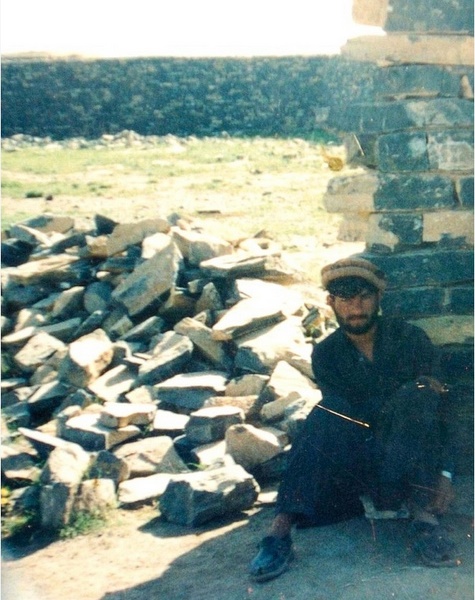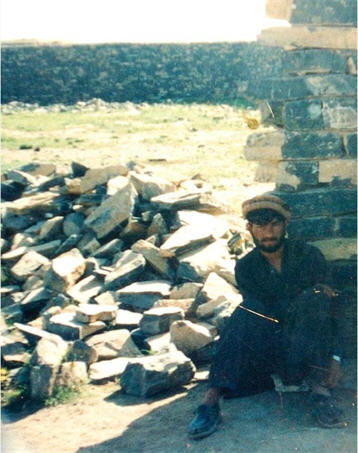

Dilawar was a 22-year-old peanut farmer from Yakubi, Afghanistan. He used to drive the tractor on his family's farm, but eventually switched to driving a car his family bought him, which he used as a taxi. He picked up two passengers in Khost, and was then stopped at Fire Base Salerno by militiamen which the US had hired to provide local security around the base. His car was searched, and an electric stabilizer was found. He was accused of being involved in the rocket attacks on Fire Base Salerno earlier that morning, and chained to a fence with his passengers overnight. From there he was transported to Bagram Air Base, where he was subject to brutal interrogations.
His hands were handcuffed to a metal grid on the ceiling of his cell, preventing him from sitting or sleeping, and he was repeatedly given "peroneal strikes" - a blow to the thigh with a knee. Specialist Willie Brand later testified that he struck Dilawar over 100 times. He was struck so many times that when the Army coroner later examined his legs, she declared that they had been "pulpified", looking as though they'd been run over by a bus. He was forced to stand on his pulpified legs until he died - just five days after he arrived.
Not long afterward, Jan Baz Khan, the guerilla commander in charge of guarding the base, was discovered to be the person who had committed the rocket attack Dilawar was accused of. Carlotta Gall, a journalist for the New York Times investigated the case, and was able to help the family understand Dilawar's English-only death certificate. Under "Cause of Death" the box for "Homicide" had been checked. Dilawar's daughter was two at the time.